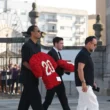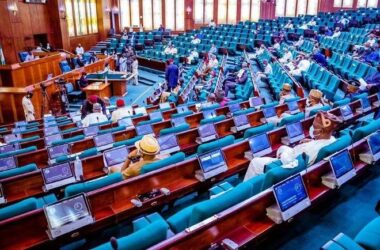The Trump administration has rescinded long-standing policies that designated schools, churches, and hospitals as off-limits for immigration enforcement. This reversal grants U.S. Immigration and Customs Enforcement (ICE) and Customs and Border Protection (CBP) officers the authority to conduct arrests in these previously protected areas.
The Department of Homeland Security (DHS), which oversees ICE and CBP, issued a statement noting the removal of restrictions that had safeguarded these “sensitive locations” for over a decade.
The statement said, “Criminals will no longer be able to hide in America’s schools and churches to avoid arrest,” adding that law enforcement agencies would now have the discretion to act as necessary.
Acting DHS Secretary Benjamine Huffman announced that the change includes the nationwide reinstatement of expedited removal, which allows ICE to deport undocumented individuals unable to prove continuous residence in the United States for more than two years.
This policy aims to streamline deportation processes and is part of a broader immigration crackdown initiated by President Trump.
As part of these efforts, Trump signed a series of executive orders earlier this week. These include suspending the refugee program, blocking a widely used immigration app, and enhancing collaboration between ICE and local governments to facilitate enforcement. ICE agents are now preparing for nationwide operations to locate and deport undocumented immigrants.
Tom Homan, the administration’s border enforcement official, confirmed that ICE officers will begin implementing the new directives immediately. “Officers across the country will be actively enforcing immigration laws,” he noted in an interview.
Meanwhile, immigrant advocacy groups and religious leaders have voiced strong opposition. The Center for Law and Social Policy warned of grave consequences for immigrant families, particularly those with U.S.-citizen children. The organization expressed fears that these policies could deter families from seeking essential services like medical care, disaster relief, and education.
Religious leaders also criticized the move, urging compassion for vulnerable communities. During a sermon at a recent prayer service, the Episcopal bishop of Washington called for humane treatment of immigrants, particularly those seeking refuge and stability.










